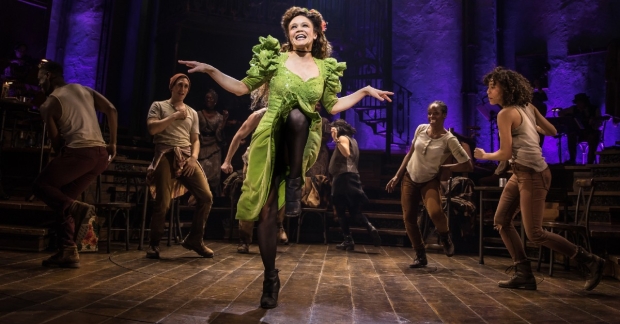Opinion: Is It Time for Performers to Renegotiate the Eight-Show Week?
Broadway is beginning to see more of its talent eager to embrace alternates in their shows.

(© Matthew Murphy)
Broadway is back — and so are the insane schedules that performers (and crews) must deal with. Many productions have returned to eight-show weeks and announced grueling holiday schedules with 10 shows or more before a night off. Add in rehearsals and put-ins and you've got incredibly intense workweeks. Sacrificing rest and time spent with loved ones is a given, and maintaining these schedules is especially exhausting for more vocally and physically demanding roles.
Hiring alternates may be a step in the right direction.
Alternates have scheduled performances, usually one or two a week, but aside from a handful of shows over the years, the practice is still relatively uncommon. The roles of Christine in The Phantom of the Opera and Eva Peron in Evita have almost always had alternates because of their physical and vocal demands (these shows both have something in common). In recent weeks, both Hadestown and Jagged Little Pill have made strides in this direction. Lana Gordon will play Persephone in Hadestown twice a week so Amber Gray can spend more time with her young family, while Heidi Blickenstaff and Elizabeth Stanley will share the role of Mary Jane in Jagged once Stanley returns from maternity leave.
Other vocally demanding roles, such as Wicked's Elphaba and the Queens in Six, often have standbys, but one could argue that giving those roles designated rest days from the outset feels healthier in the long term for everyone involved. Should we wait until a role proves too taxing to give the lead a break?
Aside from giving performers a breather, alternate casts also offer more variety for theatergoers, especially repeat attenders. There are quite a few people, me included, who like to see a show with different leads, and as someone who has dropped everything to see a show when an understudy, standby, or swing was announced, the idea of a scheduled alternate lead performance is enticing.
Alternate casting has been utilized in other markets with much success. South Korea has a robust musical-theater scene, and its frequent use of multiple casts is something I've longed to see replicated in the States, both for the sake of performers and for my own personal obsession with seeing different actors in certain roles.
In South Korea, a schedule informs ticket buyers which cast of actors they will see. And this practice is the rule, not the exception. A current production of Hadestown operates with three actors for Orpheus and Hades, rotating opposite two Hermes, Eurydices, and Persephones. The latest production of Jekyll & Hyde features three actors for the roles of Jekyll/Hyde, Lucy, and Emma, and the regularly produced Dracula usually features at least three Draculas and three Minas.
There are, of course, obstacles to making alternates a regular part of Broadway productions. Alternates are usually assigned lead roles; ensembles must still give it their all for an eight-show week, as do the backstage and front-of-house staff. There are also additional costs associated with alternates, especially when you have a Donna Murphy stepping in for a Bette Midler. And finally, the question of who gets an alternate would be a big topic of discussion.
There is a lot to consider before we see an increased number of alternates on Broadway, but in the wake of the pandemic, many have realized that their previous pace of life was untenable. Yet Broadway is still going back to the old ways — at a zero-to-60 pace that has been surprising even for the most seasoned theatrical veterans. A lot of people need a break already, and alternates for lead performers would be a step in the right direction.












